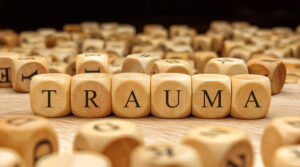Why do I feel guilty all the time?
Do you feel like your life is run by how guilty you feel every day? Do you feel like everything you do or think is governed by feelings of guilt? Do you feel constantly guilty because you think that you’ve either done something wrong or said something wrong?
We as human beings do usually make mistakes and therefore may feel guilty for our mistakes and at the thought of harming others. Therefore, a right amount of guilt is even necessary in our lives. It encourages us to want to stick to our values and, if we do something wrong, we look for a way to repair our wrongdoing. For example, we may admit to someone that we’ve done something wrong and take the responsibility for our action. This will subsequently lead to self-forgiveness. This will basically free you from the heavy feeling of guilt.
However, when guilt becomes excessive, our lives become filled with anxiety, making us aware of everything we do or say, and this can be paralyzing, debilitating and can even lead to depression.
This excessive sense of guilt, which seems to expand into almost every aspect of our lives, is related to our sense of self-worth. It is related to how we feel about ourselves. Usually people who feel bad about themselves are more prone to feelings of guilt and shame.
What is at the root of excessive shame and guilt?
Irrational guilt is about self-blame and self-hatred. It is a defense against feelings of anger, fear, hurt and other emotions that we don’t want to feel and want to suppress. This irrational guilt, in an unhealthy way, prevents us from getting in touch with other difficult underlying feelings. I’ll tell you why this might be:
We as human beings tend to both love and hate at the same time. We can at times hate the parents we love, as they sometimes make us angry and furious. But feelings of anger or hate can be such difficult feelings for a child to process. It is difficult to be angry with our parents because we need them to be our carers, so we need to preserve the idea that they are good. We need good parents. It is much easier to think that we are wrong and bad. We are the ones who need to be punished for our anger, bad thoughts and wrongdoing.
A few examples of how this irrational guilt develops:
. Sally has been brought up in a family with lots of dos and don’ts. Her parents are very critical and judgmental. Sally feels angry and furious about their judgements. But she’s been told that anger is not a healthy emotion and she fears their disapproval if she becomes angry with them, so she does not allow herself to feel angry. This anger, as I mentioned in my other blog post about anger and anxiety, needs to go somewhere; if it doesn’t turn outward, it turns inward. In this case, it then becomes a self-punishing feeling of guilt. She becomes the bad one. She keeps criticizing and judging herself. Everything she does is wrong.
. Darren lives in a family where his parents fight all the time. They may even constantly talk about getting divorced. Darren becomes frightened and full of anxiety. He becomes angry with his parents for fighting all the time; however, because he is a child, he is unable to either stop them from fighting or to express his anger in a constructive way. Thus, he needs to find a way to control the situation, especially his own difficult feelings. He cannot control his parents, but he can to control himself. He begins by blaming himself for his parents’ arguments. In his mind, he feels guilty for causing them to argue and talk about divorce. This will be easier for Darren, as he feels like he has control over himself, rather than accepting that he has no control over the situation. Because all of these things are happening on an unconscious level, Darren grows up blaming himself over every little thing and his self-esteem deteriorates, without him knowing why he feels like this. He thinks that he is bad and that he needs to feel extremely guilty.
This also happens in families where parents mistreat a child or blame the child for their own faults and mistakes. They don’t take responsibility for their own actions; therefore, the child feels responsible and guilty. They grow up with a constant feeling of guilt. They believe that everything is their fault and that they should feel responsible for everybody’s thoughts and feelings.
Perhaps you can imagine all sorts of other ways in which this irrational guilt may develop. This guilt is toxic and can paralyze our lives by crushing our personalities and self-worth. It may lead to severe and deep depression and stops us from living a normal life.
How does therapy help?
Because this all happens on an unconscious level, it may be difficult for you to make sense of what is happening to you and you may struggle to understand why you feel the way you do. Therapy can be very effective in helping you to get to the root of your unhealthy guilt and to understand why you feel this way.
It helps you to distinguish between healthy and unhealthy guilt. By recognizing the healthy guilt, we come to acknowledge our mistakes and either find ways to amend them, or mourn our mistakes, come to a better understanding of ourselves and move on.
If the guilt is unhealthy, the therapist helps you to understand the source of your feelings and get in touch with some of the other underlying emotions beneath your guilt. Your feelings will be named and made sense of for you, you’ll be freed from your excessive guilt and this helps you to change the way you view yourself.
Most of the time, we all tend to look for a quick and easy way to deal with our difficult emotions, hoping that one day they will disappear. But bear in mind that these feelings are mostly deep-rooted and, if they are not attended to, they will become deeper as we get older.



